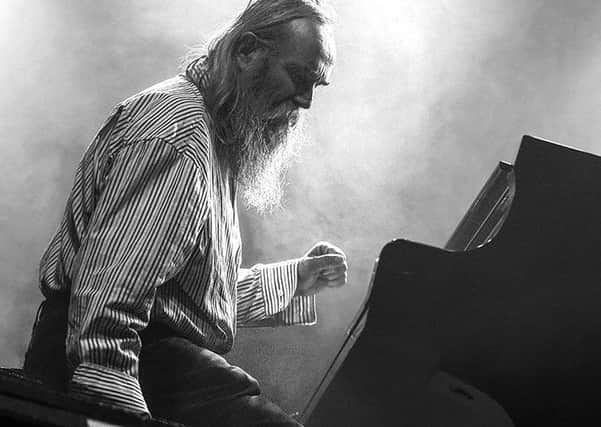Festival review: Eastern Promise, Platform, Glasgow


Eastern Promise, Platform, Glasgow ****
The grey-bearded Melnyk gave the impression of irascibility, directing the stage lighting sets and expressing concerns for the environment which aim their fire at over-eager Green campaigns as much as corporate interests, yet his playing was virtuosic and thoroughly soul-enriching, ebbing and racing through emotional textures. To have the opportunity to see as sublimely experienced and capable a musician was just one of the many delights of this year’s two-night Eastern Promise festival at Platform, a celebration of music, performance and visual art which helps cement the arts venue in Easterhouse as one of Glasgow’s key houses of exciting marginal work from around the globe.
Amid Friday night’s programme there had been one note of disappointment, with the first preview of the National Theatre of Scotland’s adaptation of The Panopticon cancelled due to performer injury. Instead the author Jenni Fagan stood in with readings from her book, while Scottish musician Debbie Armour’s neo-folk project Burd Ellen and artist-musician Duncan Marquiss’ performance to accompany his onsite exhibition rounded off the evening’s programme.
Advertisement
Hide AdAdvertisement
Hide AdThe latter selection of installed works is small but perfectly formed as a meditation of the local area, featuring closely focused views of nearby marshes, motorway and rain-soaked pavements in video, and screen-printed images of discarded plastic fruit bags designed to emphasise their geometric shape; these works are on display until December.
There was more performance art on Saturday, in Shona MacNaughton’s Mandatory Consideration, plus spoken word from Helen de Main and Chris McQueer.
As a local from Garthamlock, the much-celebrated McQueer’s “wee homecoming” went down particularly well, humorous but wise stories told in contemporary Glasgow Scots of apprentice joiners discussing Brexit, his “amalgamated superbam” Sammy trying out at McQueer’s old job of crime scene cleaner and the comparative morals of asking for a haircut like either Joseph Stalin or Ian Brady.
There was no more opposite experience to McQueer’s set than watching Portland, Oregon’s David Allred put music to his tender lyrics with guitar and piano, his soft but unschooled voice lending analogue depth to songs – including one, Hey Stranger, which was rich in its consideration of a friend who disappeared – which felt more like short stories set to music. Yet each set here offered a singularly beautiful and enriching new experience for its audience. - David Pollock